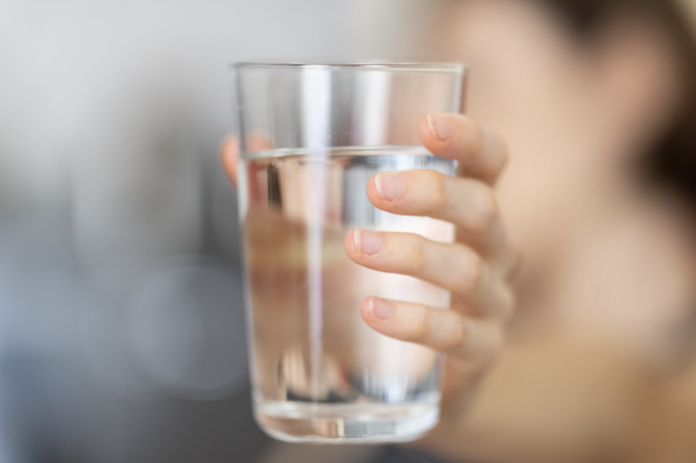The majority of us who don’t drink enough water probably don’t think dehydration is a major concern. So what, I’ll just have a drink later to make up for it? But here’s the thing: how much water we consume has an impact on our mental health. Your mental health will deteriorate if you don’t drink enough.
But I should caution you that’s not how it works before you start sipping water to get ahead. Dehydration has a detrimental effect on mental health. Your brain health and mental wellbeing are secured if you drink the necessary amount of water each day. For women, 11.5 cups are recommended daily, and for men, 15.5 cups.
Use these seven habits to be happier and learn how to improve your mental health without going to therapy if you’re looking for ways to sharpen your mind.
A better functioning brain
Lack of water impairs cognitive function since the brain requires water to function. Dehydration has been related in studies to memory and cognitive function problems. In essence, it makes it more difficult to focus, recall things, and battle brain fog.
Drinking water doesn’t simply get you to the starting point when it comes to cognitive activities; research indicate that being continuously hydrated might enhance performance. Additionally, it improves your decision-making abilities and your judgment.
Increased serotonin production
Your mood might be badly impacted by dehydration. Without water, the brain is unable to produce enough serotonin, sometimes referred to as the “feel good” neurotransmitter, from the amino acid tryptophan. Serotonin is the neurotransmitter that controls mood, so this is a major issue. By allowing your brain to continue producing serotonin, increasing your water consumption will enhance happiness.
Serotonin levels in the brain that are appropriate keep us content, emotionally balanced, and steady. We also need to make sure we stay hydrated if we want our brains to produce enough serotonin naturally.
Lessens some symptoms of depression and anxiety
According to studies, those who habitually consume less water are more likely to experience anxiety and despair. Dehydration, draining the brain’s energy, and reduced serotonin production all can exacerbate depression symptoms.
Anxiety is no different. The body becomes stressed from dehydration, which triggers the adrenal glands to go into overdrive and release an excess amount of cortisol. Our body produces cortisol as a stress hormone to counter perceived risk. Higher heart rate, tighter muscles, and a general feeling of unease are all bodily responses to a rise in cortisol.
Anxiety and despair cannot be magically cured by drinking enough water. However, it nourishes the brain and aids in reducing any symptoms you might have.
Staying hydrated can lower dementia risks
A range of age-related neurovascular disorders with decreased brain functioning, the most prevalent of which is memory, are collectively referred to as dementia. Dehydration and dementia have a special association since dementia patients have trouble staying hydrated and people who don’t drink enough water have a higher risk of acquiring dementia.
Simple tips to stay hydrated
Although everyone is aware of the need of drinking water, sometimes life gets in the way and we don’t obtain the recommended amount. Each person experiences it. Change your perspective and become more conscious of staying hydrated by using these straightforward methods.
Listen to your body: You’re already dehydrated if you’re feeling thirsty. Pick water if your body is urging you to hydrate. Also make sure to increase water intake when excercising as part of your exercise routine.
Set alarms. If you’re trying to form the habit, using apps and alarms to remind yourself to drink water is a simple method to stay on top of your daily intake.
Swap coffee for some H20: Excess coffee consumption can trigger symptoms of anxiety. Swap that third cup of coffee for a tall glass of water.
Try different flavours: Some people find water to be dull. I understand that occasionally you want something different and grab for a sweet drink like a soda. When drinking water, flavor packets or droplets might give it the extra kick you want.
Pair your water intake with a habit: A simple technique to consume more water is to link drinking it to an existing habit. It could be anything, such as drinking water prior to a meal, following tooth brushing, or each time you stand up to use the restroom.
Start with a glass of water each morning: It’s ideal to sip on a glass of water as soon as you wake up to stimulate your metabolism.
Get yourself a re-usable water bottle: It can be challenging to stay hydrated if you’re constantly moving. Purchasing a travel water bottle might make things much simpler.
Set phone alarms: Alarm clocks are a convenient way to remind yourself to take a break and drink some water. You can choose how many or how few to set.
Drink some tea: Unlike coffee, many types of teas will not dehydrate you. See some of the best teas for anxiety and stress.
What are some signs of dehydration?
One of the many signs that you’re not getting enough water is increased worry. Here are several indicators that you may be dehydrated:
- Dry mouth and thirst
- Changes in the skin such as dryness, redness, or loss of turgor
- Constipation and dark yellow urine
- Increased blood pressure rapid heartbeat
- Drowsiness or exhaustion
- Nausea or headaches
Your brain on water
Water is essential for almost all body processes. Dehydration decreases brain energy generation and can alter brain structure, which causes the brain to slow down and perform poorly. This is because 75% of brain tissue is made up of water.
Our brain cells cannot operate properly if water levels are too low at the molecular level, and the brain begins to work harder to execute tasks.
Dehydration triggers anxiety because our cells perceive it as a danger to our ability to survive. A neurotransmitter, or chemical messenger between brain cells, known as serotonin stabilizes our mood and controls our emotions. We have trouble getting the molecules needed to make serotonin into our brains when we are dehydrated.
Dehydration of even half a liter has been linked to higher levels of the stress hormone cortisol, which has been linked to a number of mental illnesses, including anxiety.
The full picture
Therefore, the government health communication offers some sound recommendations based on what is currently known and growing data. A person’s mental health can be supported by addressing lifestyle factors including water intake in the context of total diet, physical activity levels, and sleep. And there is proof that shows how our moods can be impacted by dehydration.
However, it’s crucial to remember that a variety of things influence a person’s level of worry. It’s unlikely that any one thing will be able to eliminate such feelings entirely. This is especially true for those who are suffering from severe anxiety, as simply consuming extra water is unlikely to be beneficial on its own.
One easy strategy to ease your tension may be to drink plenty of water. Although additional study is needed to fully grasp the connection between the two, researchers have discovered a link between anxiety and dehydration.
Calculate how much water you should be consuming and monitor your actual intake to ensure that you are well hydrated to prevent a fall in your mood.
To make it simpler to develop good hydration habits, you can carry water with you throughout the day.
Making hydration a part of your total self-care commitment is vital since it will keep you in good physical and mental health.






























